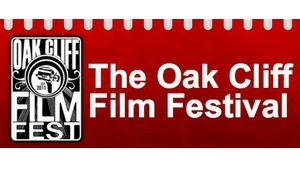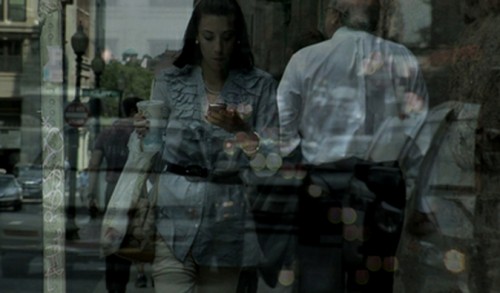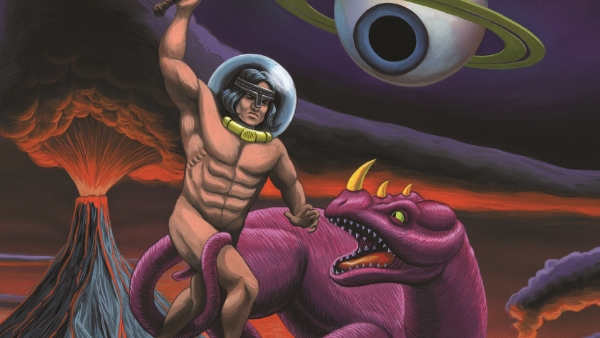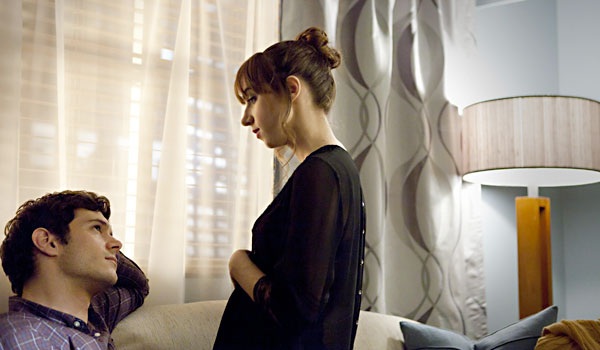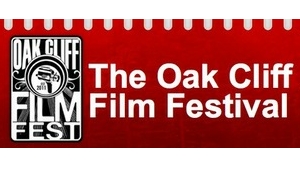 Edward Tyndall’s feature-length documentary, Reconvergence, examines the human crisis of being of mortality, and how we cope with this reality. Taking a look at this idea from the perspectives of four individuals: a naturalist, a neuroscientist, a poet and a historian, Tyndall creates a powerful and compelling film on the subject by weaving these four stories together.
Edward Tyndall’s feature-length documentary, Reconvergence, examines the human crisis of being of mortality, and how we cope with this reality. Taking a look at this idea from the perspectives of four individuals: a naturalist, a neuroscientist, a poet and a historian, Tyndall creates a powerful and compelling film on the subject by weaving these four stories together.
Have a look at the trailer as well as the high-lights from our interview with Edward Tyndall…
Reconvergence Trailer from Edward Tyndall on Vimeo.
—————————————————————————————————————————————————————————–
– What made you decide to approach the subject of the struggle with this sort of existential crisis of the impermanence of the self, and did the specific areas of focus evolve as you interviewed these four subjects?
We started the film by interviewing the poet character, Caleb Whitaker, so we didn’t really know where the film was going from there. I had known him already and hadn’t seen him in years, but I met up with him and he told me about his experience with the drug Ayahuasca, so we actually didn’t know where it would end up, but Caleb kind of mentioned Eustace Conway, the naturalist, so we just kind of followed this thread to create the film.
– How did you decide to use these particular four characters: naturalist, neuroscientist, historian and poet, for the documentary?
Whitaker mentioned Conway, so we started with him next, and then we looked for someone who was kind of the opposite, or someone claiming the opposite approach to things as these two (Conway and Whitaker), and so we found the Neuroscientist through that, and then we kind of looked for someone to bring in elements of all of them, and that’s how we found the Historian, who was kind of working in the past but also trying to use these modern techniques to kind of reincarnate these moments in the past, but all of this unfolded over several months of time.
– I found it surprising how much their ideas overlap despite their divergent backgrounds. I guess that wasn’t something you were expecting to find?
Yeah I think for a long time as we were working on the film we weren’t even sure what the film was about. It was just a strange process. We kept doing interview after interview, and we had like five or six hours of interview footage from each subject, and ultimately we found that the common thread was that the individuals were all kind of looking for the same thing. They were trying to find meaning, either through looking to the future or looking into the past, and I think because they are all looking for the same thing, and asking questions about life and death, they kind of fit together despite their differences.
– The documentary is endlessly fascinating due to the subject matter alone, but then we also get this amazing cinematography along with it, which adds a beautiful visual aspect to the experience. Who was in charge of this part of the film, and did you all collaborate on how it would be done to compliment the interview-style narrative?
The main cinematography was David Lowrey, a film director himself, and another great cinematographer named Sean Llewellyn shot the second unit stuff, and then I shot a lot of the close-ups, like the civil war soldiers with the smoke, but we talked a lot about, especially David and myself, and the look of the film and how that footage was going to be used. I knew the footage was going to be the thing that took this from people sitting in chairs talking to you, to a more cinematic experience so we really tried to get beautiful, almost poetic footage of people in their environments, and I think that’s what really makes the film work, that and the score. It turns it into an experience instead of just listening to people talk. So we talked a lot about that and the burden the footage was going to take on to add an emotional impact to the film.
– Can you talk about the score as well and how that played into the emotional impact?
A guy named Jason Wells is the composer and sound designer. He’s really amazing as I’m sure you can see by just watching the film. We worked with Jason for months and months trying to get it just right. He had to do revision after revision after revision, and he did an amazing job. I think that a tremendous amount of the films impact is derived from the music he put together. What was really challenging about it was getting the music to match the rhythms of the film, and delineate the differences between the different segments. One of the first approaches we did was just this sort of wall-to-wall music in which, every time the characters changed the music changed, but that ended up being ineffective. Ultimately what Jason and I realized was that the music needed to be a unifying thing, and be similar across characters. Jason’s actually out in Portland, he’s a great composer and you can look up other works that he’s done. He works pretty constantly.
– You sort of started out as a musician yourself, correct?
Well, maybe, you can call it that (laughs). I was in a punk rock band when I was a kid in the 80’s. I played the bass and I really sucked, but we do have several records that were produced that you can probably still order online somewhere, like obscure punk rock collectors items or something. But that’s my extent of my music background.
– How did you make the transition to film, and how do you decide what to focus your documentaries on specifically; what draws you to this thought-provoking material, and where does you inspiration come from?
I wanted to be a writer. I thought I was going to be a writer when I was in high school, and that just sort of natural evolved into working into film. I had a good friend who I had a sort of writer’s relationship with and he ended up going to film school at NYU and kind of convinced me that this was a more modern version of what we wanted to do. So I pursued that, and it’s kind of been a long road but it’s been really great and I’m fully immersed in film now and I love the projects.
As far as how I choose what I want to do, I just do stuff that I’m interested in. I work with a guy Patrick Weaver and I think that the films we do are just a reflection of our interests. That concerned me during the making of Reconvergence actually, at one point I was like, oh my god is this just four things that I’m interested; how is it going to go together? But it always ends up working out. I think, it takes so long to work on a film it has to be something you’re interested in.
– You studied history in college as an undergrad and then I also read that you did poetry, or wrote a poetry series at one point, so I just thought it was interesting that you had all of these characters that were related to your own background.
Yeah, right, exactly. I think that’s a good point. I think with people who are making these independent films, you have to consider the fact that they’re really a reflection of the filmmaker a lot of the time. So I always thought, how are these four different characters working together, and then I realized there’s this fifth character and that character was me, and that’s the thing that’s making them have these connections. I almost think that works on a subconscious level in a way, because those are all things that I’ve been interested in in my other films and what I’ve done in my life. I think those four characters are sort of representative of that, and obviously I was lucky to get people who are their own people and fascinating in and of themselves, but I think I sort of sought them out because I found them intriguing.
– Can you talk about your film background a little bit more, and any projects you are currently working on now?
I have done shorts and documentaries kind of out of necessity because obviously shorts are a way to get experience to go on to bigger projects, and they’re less expensive. Reconvergence was done because we figured we could do something really interesting on a small budget, which is hopefully true, but that’s not where we want to continue putting all of our focus. We have three films that we’re working on right now. We’re shooting in three weeks in Chicago on a film called Tasmanian Tiger, which is kind of an absurdist comedy and I co-wrote it with Mike Palleschi, he’s the director, and then in October were shooting a feature film that’s a fictional theme called Harvest. The following summer, I’m directing a feature film about a woman from Mexico traveling into the US to see her sister. So we have three films coming up and all of them are fictional films. So that will keep us busy for the next two years hopefully.
– Well, that wraps up my questions. Is there anything you’d like to add?
I think the only thing I would add is that, I think the thing that makes this film work is that it’s really a collaboration between some very talented people that I was lucky enough to work with like David Lowrey, and Jason Wells and Patrick Weaver, who I always work with, and all the characters that put the time into making the film. I just think that filmmaking is a collaborative art, and people always talk to the director of the film, but the director really, is one fourth or fifth of the equation, and I think this film has a lot of really great people who worked on it, and we’re really happy with how it worked out.
For more on the Festival, click this link to the main page for the Oak Cliff Film Festival as well as more in-depth interviews on the official OCFF Tumblr page.
